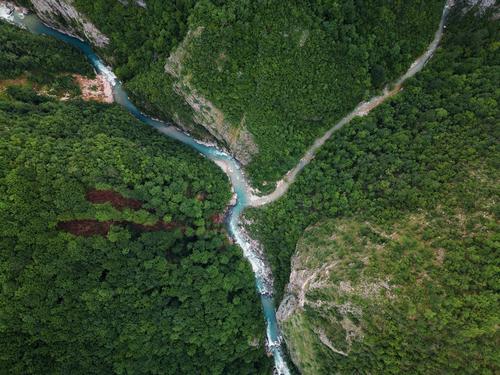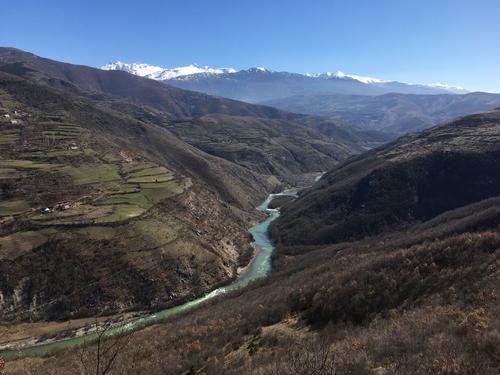New study shows systemic failures of Western Balkan countries to comply with EU environmental law

In the six Western Balkan countries there are still untouched rivers and river sections that are ecologically very valuable; here the confluence of the Ljuta and Neretva in Bosnia-Herzegovina.
© Joshua D. Lim
The small hydroelectric power plant Ilomska on the Ugar in Bosnia-Herzegovina. For many such construction projects, the environmental impact assessments are utterly inadequate.
© Amel Emric
The Black Drin in Albania has already been destroyed by construction in large parts. Now the last untouched section is to be dammed to create a huge reservoir.
© Amelie HuberRadolfzell, Brussels, Vienna. A new report published today by ClientEarth provides an interim assessment of how effectively six Western Balkan countries are safeguarding their rivers by incorporating key EU laws related to hydropower projects into their national legislation. Despite differences in how the laws were adopted, all countries face common shortcomings in effectively enforcing them.
Maja Pravuljac, legal expert at ClientEarth and author of the report said: “This report not only sheds light on the current state of river protection in the Western Balkans, but also provides a clear path forward for enhancing legal frameworks to ensure the long-term health of these vital ecosystems. The findings and recommendations of this report will be instrumental in guiding policymakers, environmental advocates, and other stakeholders in their efforts to protect and preserve Europe’s last pristine rivers.”
According to the report’s analysis, most Western Balkan countries struggle with enforcing environmental regulations due to inadequate institutional capacity and insufficient data on water bodies and biodiversity. This is evident in the inadequate quality of data in environmental impact assessments (EIAs) and outdated decisions, as seen in hydropower projects on the Vjosa River (Albania), Komarnica River (Montenegro), or Drina River (Bosnia and Herzegovina).
Ulrich Eichelmann from Riverwatch said: “While the laws often meet EU requirements, their implementation frequently falls short. Despite the mandated EIAs being conducted, their quality is typically utterly inadequate. Consequently, projects are often approved without a clear understanding of their impact.”
Incorporating EU environmental laws and complying with them is key for the Western Balkan countries striving for EU membership.
Viktor Berishaj, Senior Policy Officer at EuroNatur said: “Adopting EU environmental standards is more than just a procedural step for the Western Balkan countries, it is a transformative measure towards sustainability and integration. By doing so, these countries not only protect their rich biodiversity, but also fit into a broader European framework that promotes nature conservation and sustainable development. The consistent process of alignment serves as a solid foundation for a future of the Western Balkan countries in the European Union and ensures that they are well prepared to meet the challenges and opportunities within its policy framework.”
Background information:
● You can download the complete study here and executive summary here.
● This report was produced by ClientEarth, EuroNatur and Riverwatch within the frame of the “Save the Blue Heart of Erurope” campaign.
● Western Balkan States: The countries Albania, Bosnia and Herzegovina, Kosovo, Montenegro, North Macedonia and Serbia are classified as Western Balkan states. They all aspire to join the EU in the medium term and currently have different candidate statuses.
● The "Save the Blue Heart of Europe" campaign aims to protect rivers with particularly high nature value on the Balkan Peninsula, which are threatened by more than 3,400 hydropower projects and other nature-destroying plans. The campaign is coordinated by the international nature conservation organisations Riverwatch and EuroNatur, supported by ClientEarth, and implemented together with partner organisations in the Balkan countries. Further information can be found at https://balkanrivers.net/en. The campaign is supported by the Manfred-Hermsen-Stiftung, among others.
Contacts:
EuroNatur – Christian Stielow, christian.stielow(at)euronatur.org, Tel.: +49 (0)7732 - 92 72 15
Riverwatch – Ulrich Eichelmann, ulrich.eichelmann(at)riverwatch.eu, Tel.: +43 676 6621512
ClientEarth – Bianca Vergnaud, bvergnaud(at)clientearth.org, Tel.: +32 471 88 70 95


